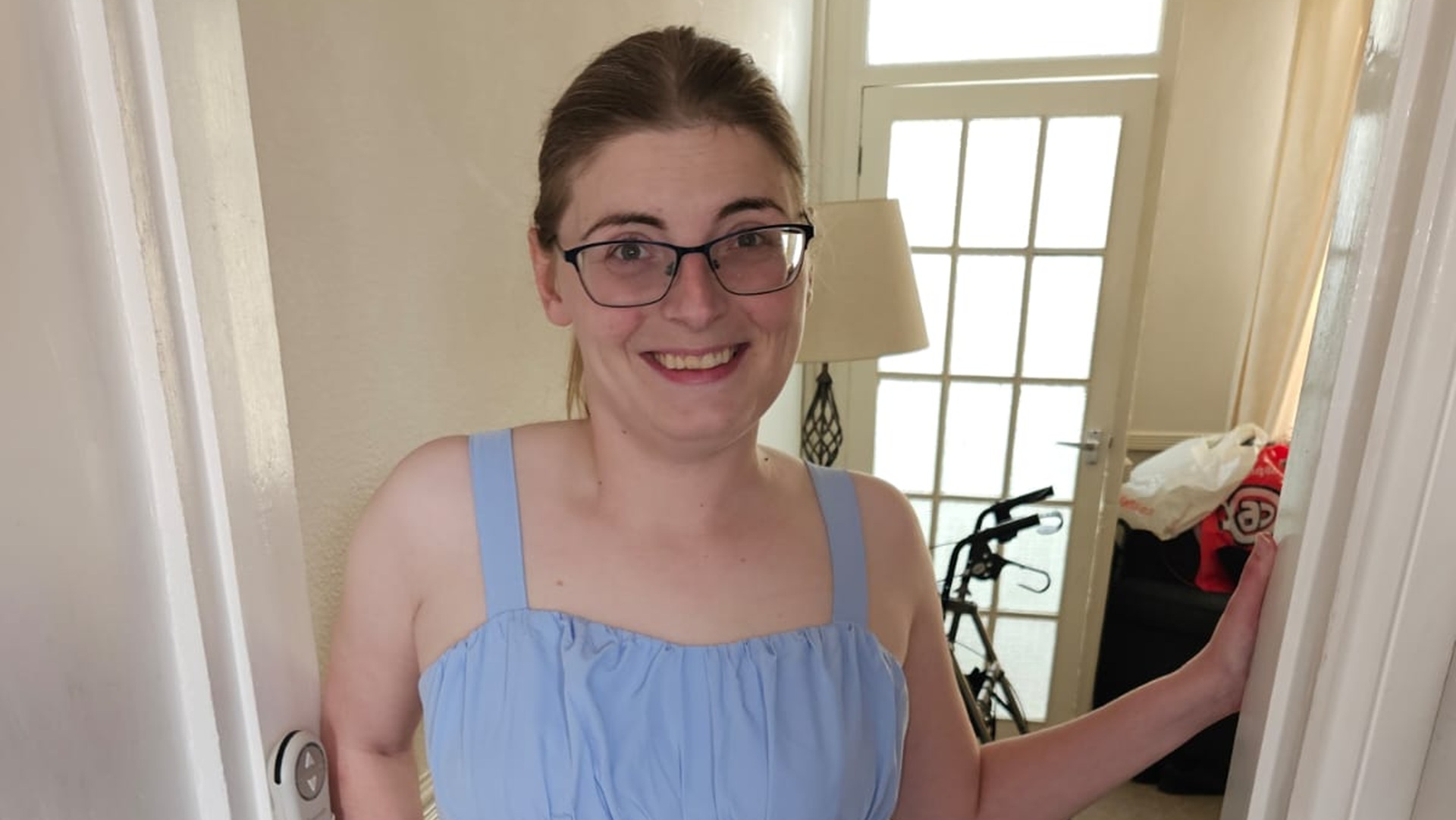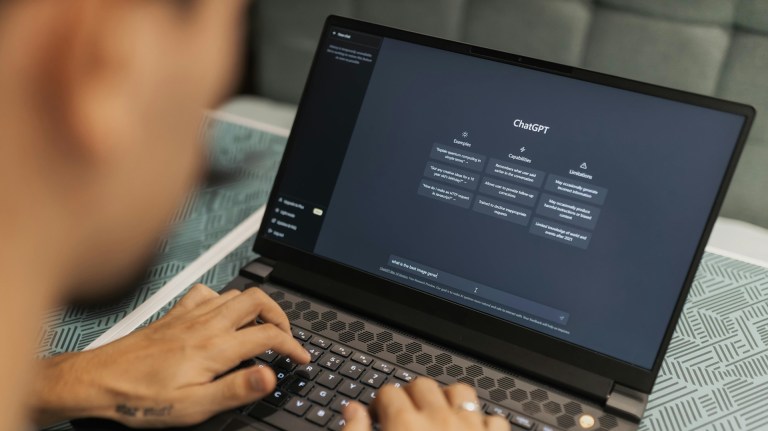I never thought I’d think that life is not worth living, but that’s how hard it is living with multiple sclerosis (MS). Back in 2020, I remember not really being able to go out by myself, and I was sat there on my back doorstep, crying and thinking that I might as well kill myself.
My multiple sclerosis began when I was 19 and I started having seizures during my sleep. I’d go and see my doctor after each one and he’d tell me: “Oh, no, you’ve just been having panic attacks.” And he would give me some medication for anxiety. When I was back home I would put it in the bin.
After a year of this, one morning I had a seizure and my mum looked up my symptoms on the NHS checker, and it came back with a possible transient ischemic attack – which is a baby stroke. We went to my town’s A&E and I was seen pretty much immediately by the triage nurse and then a neurologist who sent me for an MRI. There was something really wrong in that MRI, so they wanted me to come into the hospital to do some tests. In the end I was diagnosed with relapsing remitting MS [this is the most common form of MS, affecting about 85% of people with the disease].
I think people should know about the heartache caused by MS – how it affects so many areas of your life. Sometimes you don’t have the energy to go out and speak. It does get you down, not being able to go out. I sometimes think to myself how my husband doesn’t deserve this headache. Even just having a bad day means having to have more naps. It is an everyday battle. It can’t be cured. I know there are clinical trials, but I can’t apply because I don’t have a progressive form of multiple sclerosis.
I only manage to get out of the house once a week to go to the supermarket and I feel terribly lonely at home when my husband is at work. Most people take going out for granted but I need to plan it carefully. I think the main thing is knowing whether or not I can get to where I need to go, and how difficult that is. Sometimes the effort is too much. Uneven pavements, or someone parking on the pavement, and a lack of accessible public transport makes it impossible to go out. These are the main things which stop me from leaving the house. I am really only able to walk outside my house when I’ve had steroids. My leg doesn’t work properly anymore so I have to use a wheelchair. I’ve tried going out in a manual wheelchair but I found that because of potholes my arms were getting really tired, so I bought myself an electric wheelchair.
I am happy I am able to walk down a few steps to access toilets or services, but I worry for people who are completely wheelchair bound. One day, I went to a local restaurant to have some celebratory drinks with my family and my best friend. I had to use the stairs to get downstairs as the lift had broken, and I was only able to go down with my walking stick and another person. I felt quite alright doing that, until I found my stick going into a spilled drink, which had me falling down the stairs. My husband had to come and pick me up in his car.
I know I’m not unique in this. The MS Trust’s new Life Changing: Getting around with MS report shows that around 96,000 people with multiple sclerosis are unable to leave their house without help and that the impact on the mental and physical health of those who are forced into being housebound by their condition is a major concern. More than 70% reported that transport problems impacted their mental health, with around 77% feeling isolated and more than half of respondents saying they would leave their house more often if support was available.










